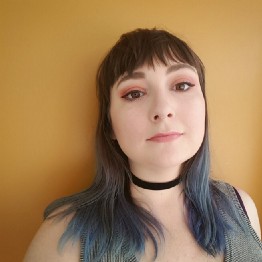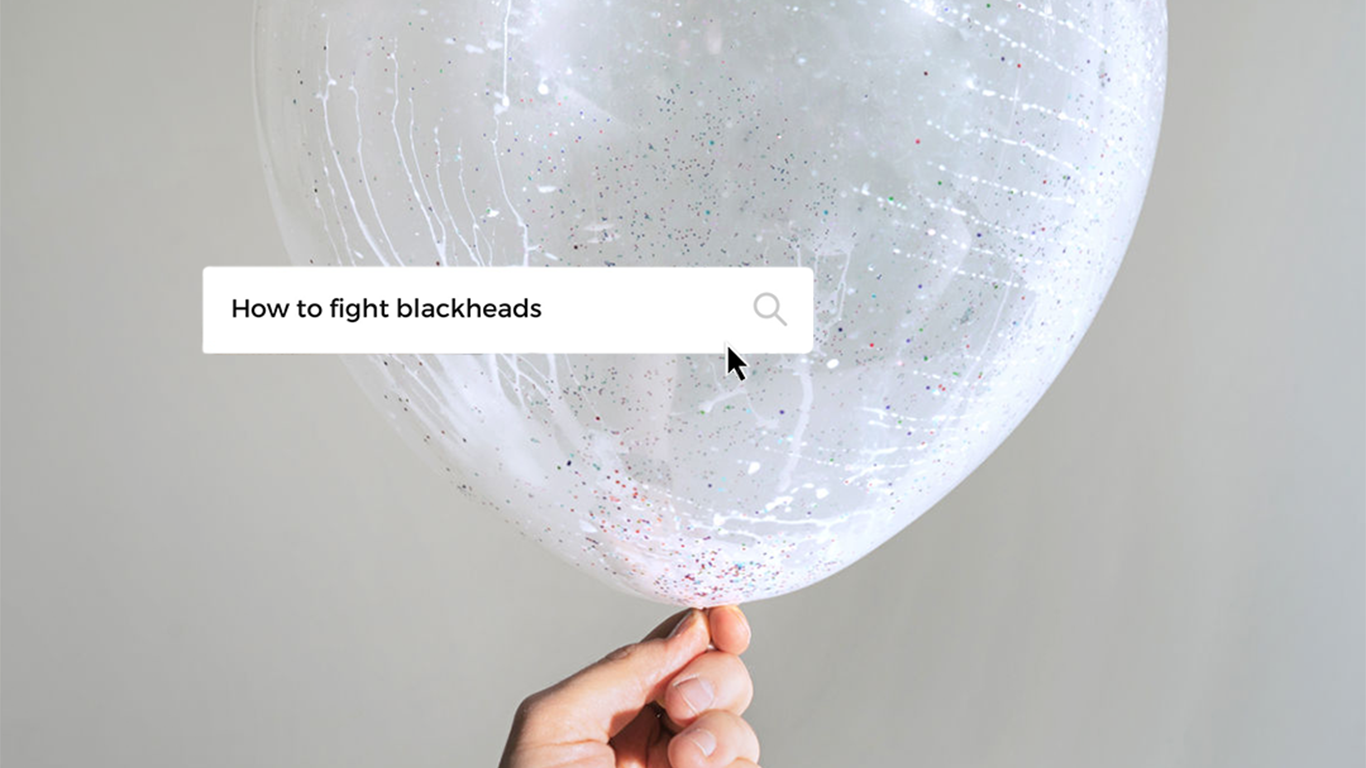How it works:
Share your skin goals and snap selfies
Your dermatology provider prescribes your formula
Apply nightly for happy, healthy skin
How it works:
How it works:
Share your skin goals and snap selfies
Your dermatology provider prescribes your formula
Apply nightly for happy, healthy skin
How it works:
Blackhead removal: facts vs. fiction
Pore strips, face masks, and vacuums — oh my!



Who doesn’t love clogged pores? Squeezing, popping, and sucking the gunk out of blackheads on the nose, chin, and cheeks = the most oddly satisfying viral video trend of the 21st century (it’s all downhill from here). But is it safe to remove blackheads this way, and do these blackhead removers cause skin damage? As someone who suffers from deep scars from pimple popping, I have my doubts. So this week, I checked in with Curology’s dermatology providers and did a little research to suss out what’s fact and what’s fiction. If you’re wondering how to remove blackheads without damaging your skin, keep reading.

What causes blackheads?
Blackheads are small clogged pores that turn black because of oxidization. When it comes to blackheads vs. whiteheads, blackheads are open comedones while whiteheads are closed comedones. So while both are clogged pores, blackheads turn black because the gunk inside them is exposed to the open air.
Blackheads can also be a reaction to excessive UV damage. Called solar comedones, they appear on parts of the body that have been exposed to sunlight over a long period of time. So even if you aren’t prone to breakouts, blackheads may become an issue for you if you don’t practice enough sun protection.
A blackhead remover may unclog pores, but do any of them offer a lasting solution that won’t damage skin?
Is it safe to use…
Blackhead tweezers
Blackhead tweezers are a blackhead removal tool that physically unclogs pores. Applying pressure with one end of the tool loosens the gunk, pushing it out, while the other end pulls it out. While licensed estheticians as well as board-certified dermatologists (like Dr. Pimple Popper!) might use these tools safely and effectively (to speak nothing of the oddly satisfying results), these blackhead removers probably aren’t safe for home use. Picking at or extracting blackheads can worsen breakouts and lead to scarring. 0/10, would not recommend!
Blackhead vacuums
We wrote about the at-home blackhead vacuum back in 2018, when these Korean products first started trending in North America. You may have seen those oddly satisfying videos of a blackhead remover vacuum suctioning the gunk out of pores in mere seconds. But there’s a reason most skincare professionals don’t recommend these for at-home use: if the suction is intense, you’ll end up with bruising and skin irritation. If you must try one, go to a professional esthetician — they’ll have the proper tools, and know how to use them correctly.
Blackhead removal strips
Nothing transports me back to a middle school slumber party quite like slapping a charcoal-colored blackhead strip on the bridge of my nose. But when it comes to safety, blackhead strips are a mixed bag. Sure, strips can pull gunk out, but the effect is only temporary — empty pores fill up again quickly. Using blackhead strips can also damage your skin! Ripping at your pores can damage and irritate your skin, especially if you use them too frequently.
Blackhead removal masks
A blackhead removal mask may come in many forms: peel off, clay, charcoal, and even magnetic. Typically, blackhead masks are applied wet and removed dry. As you peel off the hardened mask, it may pull dead skin cells out of your pores. But — just like with our friends, the strips — there’s nothing stopping your pores from filling back up again. In other words, the effects are temporary. Overly frequent use can lead to skin damage as well! So if you find a blackhead removal mask that works for you, use it once or twice a week, max.
How to get rid of blackheads
Blackhead removers can provide temporary results — with some potential downsides. Personally, whether it’s a strip, a mask, or a tool, they’ve never worked for me. The key to keeping blackheads at bay may depend on whether or not your skincare routine has these key ingredients:
Salicylic acid — blackheads respond well to chemical exfoliation with BHA (Beta Hydroxy Acids), the most popular of which is salicylic acid. These help to treat and prevent clogged pores by stopping dead skin cells from building up.
Azelaic acid — blackheads are just one of many skin conditions that may improve with this ingredient. Commonly used to treat conditions ranging from acne to rosacea, azelaic acid acts against both harmful bacteria and clogged pores.
Tretinoin — one of the most powerful retinoids available, tretinoin is an age-defying ingredient that may improve skin texture. In the case of blackheads, it stabilizes the natural life cycle of skin, preventing and treating even the tiniest of clogged pores before they become blackheads.

Start your free trial (plus shipping and handling)
The easiest way to get azelaic acid and tretinoin are through Curology’s dermatology providers, who will evaluate your skin and give you a custom prescription to fight your blackheads. Sign up for a free trial and just pay $5.45 to cover the cost of shipping and handling on your first Curology custom cream or complete 3-step skincare set.

Stephanie Papanikolas

Nicole Hangsterfer, PA-C
Related Articles
25 skincare myths debunked: what you need to knowAsk a skin expert: Your skin’s damaged skin barrierWhat’s causing your skin irritation and how to stop itForehead acne: what’s up with that?How to treat dry, flaky skin and rosaceaPopular Articles
Ask Curology: Is my cold breaking me out?Slugging: The dermatologist-approved skincare hack going viral on TikTokTretinoin vs retinol: What’s the difference?How to create a self-care routine that actually sticksYour 2023 skincare horoscopeTry prescription skincare
Get routine essentials


Get clearer skin with Custom FormulaRX
Get clearer skin with Custom FormulaRX
- Breakouts
- Clogged pores
- Whiteheads
- Redness
- Blackheads
$29.95/month